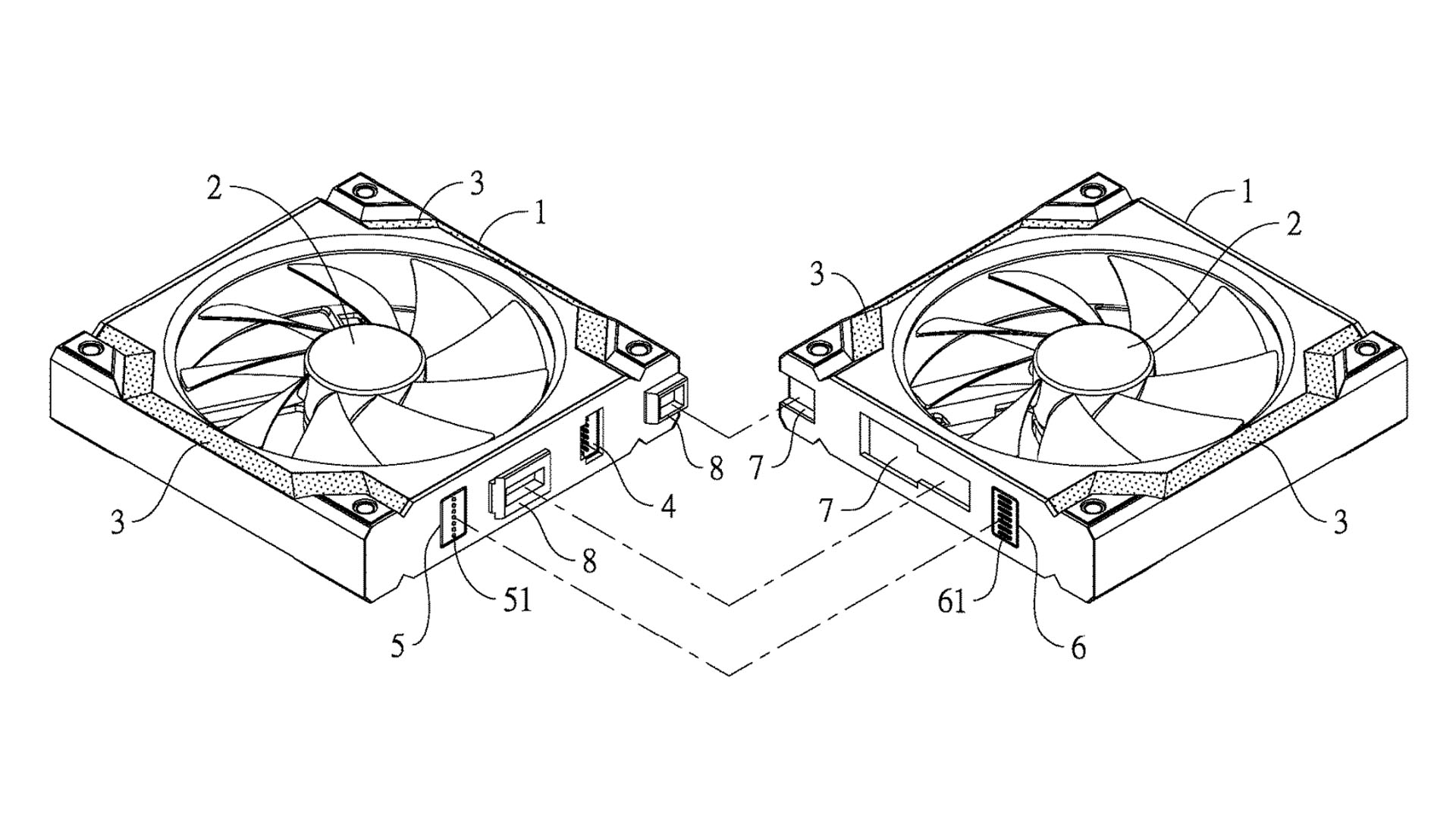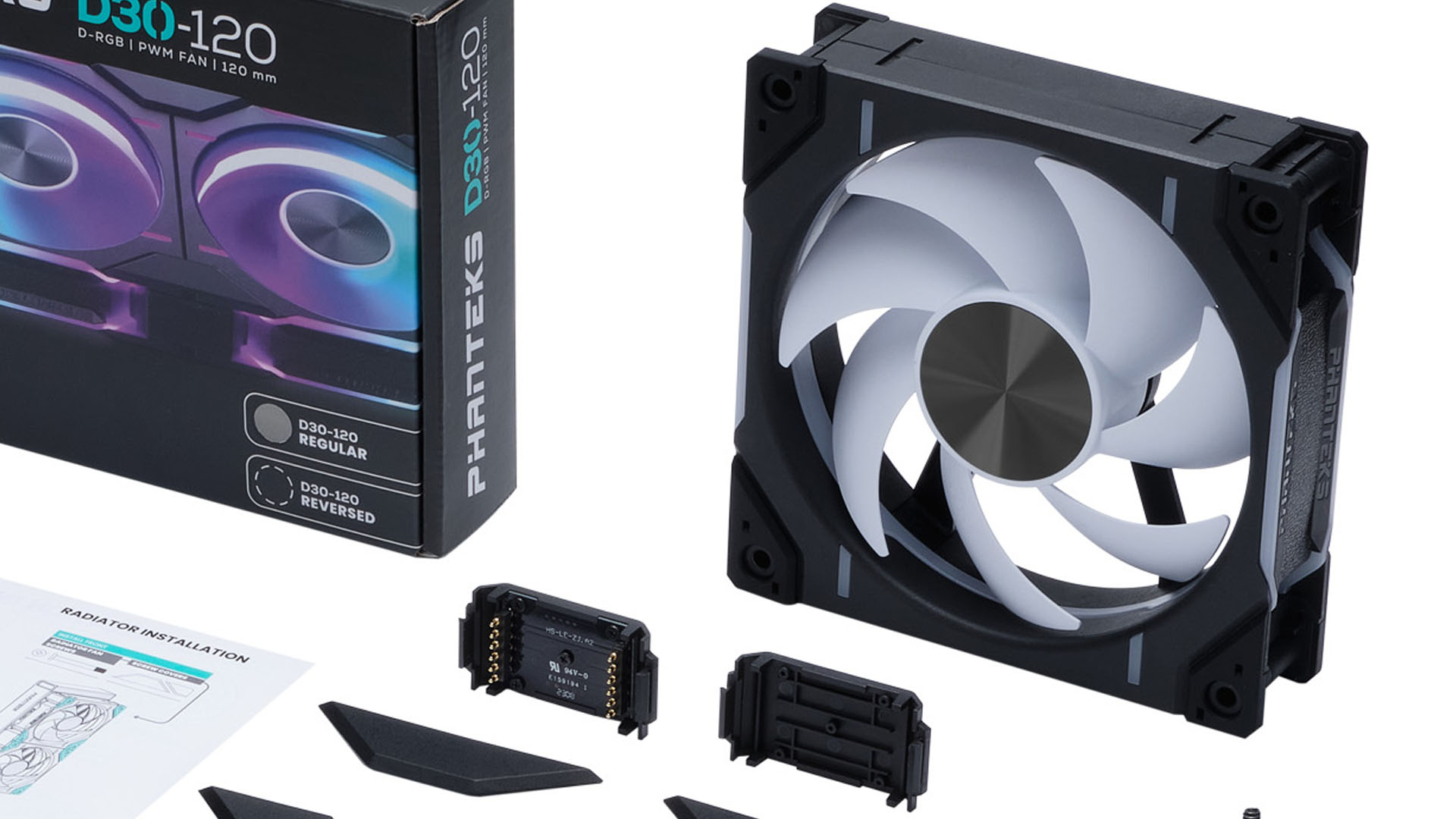Lian Li and Phanteks are set to be at loggerheads in the US courts soon as Lian Li sues Phanteks over the company’s daisy-chain PC fan design. The Taiwanese case and cooling manufacturer claims the Phanteks D30 series of fans infringe upon US patent 10,690,336 B1, which was awarded to Lian Li on June 23, 2020. The patent describes the method by which RGB fans can be daisy-chained together using a single connector and no extra wires.
Lian Li was among the first companies to introduce the idea of fans that can clip together, with its Uni fan range using fixed contacts on the fan casings to pass along power and fan control, doing away with extra cables. Since then, we’ve seen similar designs from the Corsair iCUE Link, Deepcool FC120, and yes, the Phanteks D30, but until now there has been no suggestion of a patent infringement. However, one aspect of the Phanteks design has particularly caught Lian Li’s ire and led to the current lawsuit.

At a glance the two fan designs appear to be sufficiently different, at least in the way the fans physically connect. The Lian Li fans have electrical contacts on the sides, so they make contact when the fans are clipped together, but the D30 design uses an extra side clip piece to electrically connect the fans, which looks similar to an old SLI or CrossFire clip.

Lian Li Uni fans just slide together…

…but Phanteks D30 fans use a clip to connect
The case has come about following Lian Li making direct contact with Phanteks about what it thought were patent infringements, but Phanteks has continued to sell the D30, seemingly ignoring Lian Li’s claims. As such, Lian Li has taken to court, hoping to receive legal confirmation that Phanteks has infringed its US patent. If successful, Lian Li is seeking payment for damages to date, plus a sales injunction on infringing products sold without a license.
In response to the filing, Phanteks responded, saying:
‘We at Phanteks can confirm the filing of the patent infringement suit filed by a fellow PC enthusiast brand. We want to inform the community that our legal team is and has always properly handled any legal issue or communication that has arose.
From the start of the Phanteks D30 fan development, we set out to design an original product that innovates to provide new solutions to PC enthusiasts. We have consulted with patent lawyers during the development and prior to the announcement of the D30 fans and the fans were not found to infringe on the claims in the patent. Phanteks D30 fans are an original idea and have been issued patents in multiple countries to date.
We value and respect valid and enforceable IP rights and are confident that the result of this legal matter will confirm there is no infringement. We will continue our mission to serve the PC community by creating unique and innovative solutions.’
If the court does rule in Lian Li’s favor, it will be interesting to see if Lian Li also goes after the likes of Deepcool and Corsair as well. The likelihood of that would seem to rest on whether the patent can be seen as covering the general idea of interconnected fans or smaller specifics. If it’s the former, any copycat fan system could be culpable, but if it’s the latter then it would Corsair’s iCUE Link system might be safe, as it uses a proprietary digital interconnect, rather than an analog connection. Either way, the outcome could have a significant impact on the PC fan market.
Do you think Lian Li has blown this situation out of proportion, or is the wind in its favor? Let us know your thoughts on the Custom PC Facebook page, via Twitter, or join our Custom PC and Gaming Setup Facebook group and tap into the knowledge of our 420,000+ members.
